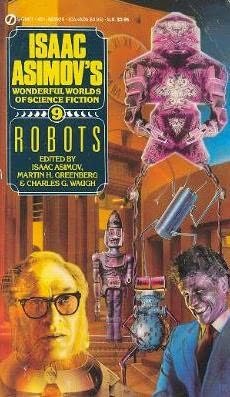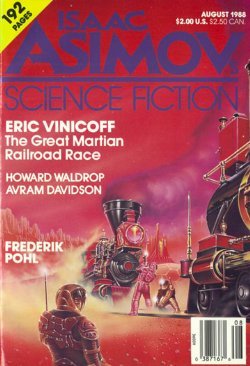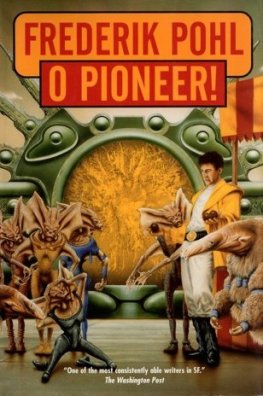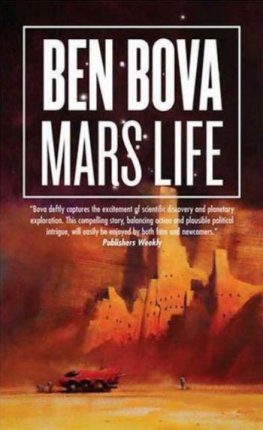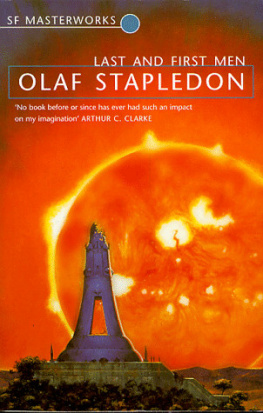It is not an easy thing for a flesh-and-blood human being to come to terms with the knowledge that some of his flesh is going to be ripped from him and replaced with steel, copper, silver, plastic, aluminum and glass. We could see that Torraway was not behaving very rationally. He went blundering down the hall away from the Mars-normal tank in great urgency, as though he had a most pressing errand. He had no errand except to get away. The hall seemed like a trap to him. He felt he could not stand to have one person come up to him and say he was sorry about Willy Hartnett, or acknowledge Torraway's own new status. He passed a men's room, stopped, looked aroundno one was watching himand entered to stand at the urinal, eyes glazed, fixed to the shiny chrome. When the door pushed open, Torraway made a great show of zipping and flushing, but it was only a boy from the typing poo1 who looked at him incuriously and headed for a booth.
Outside the men's room the deputy director caught him. "Goddamn lousy thing," he said. "I guess you know you're"
"I know," said Torraway, pleased that his voice was so calm. "We're going to have to find out what happened fast. I'm having a meeting in my office in ninety minutes. We'll have the first autopsy reports. I want you there."
Roger nodded, glanced at his wrist watch and turned smartly away. The important thing, he thought, was to keep moving as though he were too busy to interrupt. Unfortunately he couldn't think of a single thing he had to do, or even that he could pretend to be doing, to keep conversation away. No, he recognized, not conversation. It was thought he wanted to keep away, thinking about himself. He wasn't afraid. He wasn't furious at fate. He just wasn't prepared to look into the personal consequences of Willy Hartnett's death, not right at that moment
He looked up; someone had been calling his name.
It was Jon Freeling, Brad's surgical assistant in perceptual systems, looking for Brad.
"Why, no," said Torraway, glad to be talking about something other than Willy's death or his own future, "I don't know where he is. Went to lunch, I think."
"Two hours ago. His tail's going to be in a crack if I can't find him before the DD's meeting. I'm not sure I can field all the questionsand I can't go looking for him, they're bringing the cyborg into my lab now, and I've got to"
"I'll find him for you," Torraway said hastily. "I'll call him at home."
"Tried it. No dice. And he didn't leave a number where he could be reached."
Torraway winked, suddenly feeling relieved, delighted to have a challenge he could respond to. "You know Brad," he said. "You have to remember there's a lot of tomcat in that boy. I'll find him." And he took the elevator to the administrative floor turned two corners and rapped on the door marked Administrative Statistics.
The function of the people inside that door had very little to do with statistics. The door didn't open at once; instead, a spy-hole opened and a blue eye looked out at him. "I'm Colonel Torraway, and it's an emergency."
"One moment," said a girl's voice; there was a sound of clattering and scraping, and then the door unlocked and she let Torraway in. There were four other people in the room, all of them in civilian clothes and looking rather undistinguished, as they were meant to do. Each had an old-fashioned rolltop desk, of a kind one did not usually expect to see in a modern space-agency office. The tops could be pulled down to conceal what was on the desks at a moment's notice; they were down now.
"It's Dr. Alexander Bradley," Roger said. "He's needed urgently in about an hour and his department can't find him. Commander Hartnett is dead, and"
The girl said, "We know about Commander Hartnett. Do you want us to find Dr. Bradley for you?"
"No, I'll do it. But I expect you can tell me where to start looking. I know you keep tabs on all of us, extracurricular activities and all." He did not actually wink at her too, but he heard the sound of a wink in his voice.
The girl looked at him steadily for a moment. "He's probably at"
"Hold it," called the man at the desk behind her, his voice surprisingly angry.
She shook her head, overruling him without looking at him. "Try the Chero-Strip Hover Hotel," she said. "He usually uses the name of Beckwith. I'd suggest you telephone. Maybe it would be better if we did it for you, at that"
"Oh, no," said Torraway easily, resolute to keep this chore for himself. "It's important I talk to him myself."
The young man said strongly, "Dr. Torraway, I really suggest you let us handle"
But he was already backing out of the door, nodding, not listening any more. He had made up his mind not to bother telephoning but to drive to the motel; it was a valid reason to get out of the lab while he collected his thoughts.
Outside the air-controlled laboratory buildings Tonka had been getting hotter and hotter. The sun penetrated even the tinted windshield, filling Torraway's car with heat that defied the cooling system. He drove inexpertly on manual, taking the curves so sloppily that the guidance wheels skidded. The motel was fifteen stories tall and solid glass; it seemed to aim the sunlight directly at him, like Archimedes's warriors defending Syracuse . He was glad to get out in the underground parking lot and take the moving stairs up to the lobby.
The lobby itself was as tall as the building, completely enclosed, with the rooms racked around it and flying bridges and galleries crisscrossing overhead. The clerk had never heard of Dr. Alexander Bradley.
"Try Beckwith," suggested Torraway, offering a bill. "He sometimes has trouble remembering his name."
But it was no use, the clerk either couldn't place Brad or wouldn't. Roger drove out of the parking space, paused in the beat of the sunshine and considered what to do next. He stared unseeing into the reflecting pool that doubled as the motel's air-conditioning heat sink. Probably he should try phoning Brad at his apartment, he thought. Should have done it while he was in the lobby; he didn't much want to turn around and go back in. Or call from the car, for that matter; the car phone was broadcast radio, and the conversation would be better private. He could go home and call from there, he planned; it was not more than a five-minute run
At which point it first registered on Roger that he really ought to tell his wife what had happened.
It was not a duty he looked forward to. Telling Dorrie unfortunately implied spelling it all out to himself. But Roger had a good attitude toward inevitable things, even if unpleasant, and keeping his mind in neutral, he turned the car toward home and Dorrie.
Unfortunately Dorrie wasn't there.
He called to her in the hallway, peered into the dining room, looked at the swimming pool in the back, checked both bathrooms. No Dorrie. Out shopping, no doubt. It was annoying, but it couldn't be helped, and he was just about to leave a note for her, staring out the window while he tried to think how to phrase the note, when he saw her driving up in her micromidget two-seater.
He had the door open for her before she got to it.
He expected she would be surprised. He had not expected that she would just stand there, her pretty eyebrows raised and motionless, her expression showing no movement at all. She looked like a snapshot of herself, frozen in the middle of a step.
He said, "I wanted to talk to you about something. I just came from the Chero-Strip, because Brad is involved too, but"
She came to life and said politely, "Let me come in and sit down." There was still no expression on her face as she paused in the hallway to look at herself in the mirror. She smoothed some blemish on her cheek, fluffed her hair, went into the living room and sat down without taking off her hat. "It's awfully warm out today, isn't it?" she observed.


